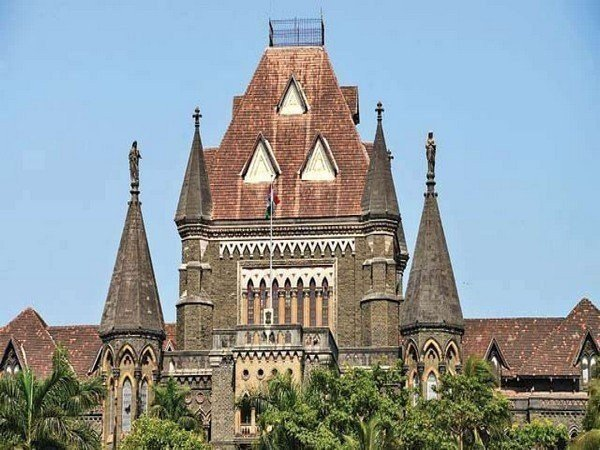HC grants activist Raut bail in Elgar Parishad-Maoist links case, says evidence not corroborated

- Country:
- India
The Bombay High Court on Thursday granted bail to 33-year-old activist Mahesh Raut, an accused in the Elgar Parishad-Maoist links case, noting the evidence relied upon by the National Investigation Agency (NIA) against him was hearsay and not corroborated.
At the most, Raut can be said to be a member of the CPI (Maoist) but no covert or overt terrorist act has been attributed to him and NIA has placed no evidence to show that he was involved in recruiting persons to the banned outfit, said a division bench of Justices A S Gadkari and Sharmila Deshmukh.
After the bench pronounced its order, special public prosecutor Sandesh Patil, appearing for the NIA, sought it to be stayed for two weeks. The bench stayed the operation of its order for one week.
Raut was arrested in June 2018 and is presently in judicial custody at the Taloja prison, on the outskirts of Mumbai.
“In the present case, the incriminating material does not in any manner prima-facie leads to draw an inference that the appellant (Raut) has committed or indulged in a ‘terrorist act’ as contemplated under section 15 of the UAPA (Unlawful Activities Prevention Act),” the court said in its judgment.
The bench added that at the most it can be said that Raut was a member of CPI (Maoist) and that this would attract only provisions of Sections 13 and 38 of the UAPA.
It added that the maximum sentences under these sections are seven years and ten years.
“According to us, there is no material on record to indicate that there are reasonable grounds for believing that the accusations against the appellant under Sections 16, 17, 18, 20 and 39 of the UAPA are prima facie true,” the court said.
These sections pertain to recruitment, punishment for terrorist activities, conspiracy to commit terrorist activity, punishment for being a member of a terrorist group and committing an offence to support a terrorist group.
The court said Raut was in pre-trial incarceration for more than five years and there are no criminal antecedents, so a case to grant bail has been made out.
The bench directed Raut to furnish a surety of Rs 1 lakh as bail and permitted him to furnish cash bail for a period of eight weeks.
Raut shall not leave Mumbai and must seek prior permission from the special NIA court if he desires to travel outside the city, the HC said, directing the activist not to tamper with evidence. The bench in its order noted that the allegations against Raut are that he is a member of a banned organisation, he was actively involved in recruiting persons in the organisation and was handling and transferring funds to co-accused.
It noted that the NIA in its case against Raut was relying on certain communications and documents recovered from the computer of co-accused Rona Wilson.
“These documents have not been recovered from the Appellant and therefore, as has been held by the Supreme Court in the case of Vernon Gonsalves (co-accused in the case who was granted bail) these communications or contents thereof have weak probative value of quality,” HC said.
It added that the contents of the letters through which Raut is sought to be implicated are in the form of hearsay evidence, recovered from co-accused.
The bench noted that even assuming the NIA’s claim for arguments that comrade Prakash had handed over Rs 5 lakh to Raut for onward transmission, there is “no corroboration at all to it that the appellant (Raut) in fact received the money and handed it over to co-accused”.
“Merely because Com. Prakash says that he handed over the said amount to Appellant, it ipso-facto (by the fact itself) does not make Appellant recipient of it, for want of basic corroboration for it,” HC said.
The bench noted that it was unable to prima-facie accept the contention of NIA that Raut had committed the offence of recruiting persons to a banned outfit as “no evidence of any of the persons who are alleged to have been recruited or have joined the organisation through the appellant has been produced on record and brought before us”.
Raut had moved HC in 2022 seeking bail and challenging the order passed by the special NIA court refusing him bail.
Raut in his plea had said his custody was unwarranted and that it was against Articles 14 and 21 of the Constitution.
The NIA had opposed the plea saying it was not justifiable to grant an accused, booked under the Unlawful Activities Prevention Act (UAPA), to seek bail on constitutional grounds.
As many as 16 activists have been arrested in the case of which five are currently out on bail.
Scholar-activist Anand Teltumbde, lawyer Sudha Bharadwaj, Vernon Gonsalves and Arun Ferreira are out on regular bail, while poet Varavara Rao is currently out on bail on health grounds. Another accused, activist Gautam Navlakha, is currently under house arrest as per the direction of the Supreme Court.
The case pertains to the Elgar Parishad conclave held in Pune on December 31, 2017, which according to the Pune police was funded by Maoists.
The inflammatory speeches made there led to violence at the Koregaon-Bhima war memorial in Pune the next day, police had alleged.
The case was later probed by the NIA.
(This story has not been edited by Devdiscourse staff and is auto-generated from a syndicated feed.)










